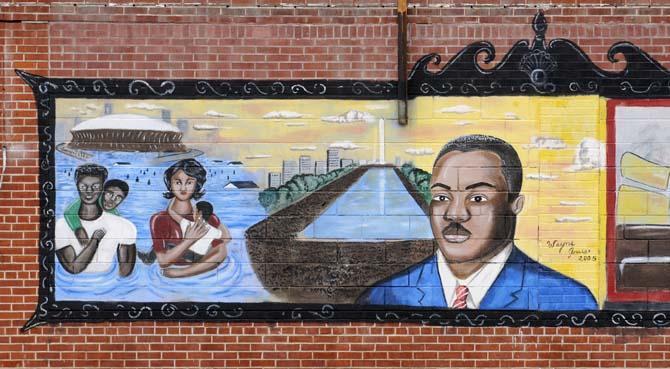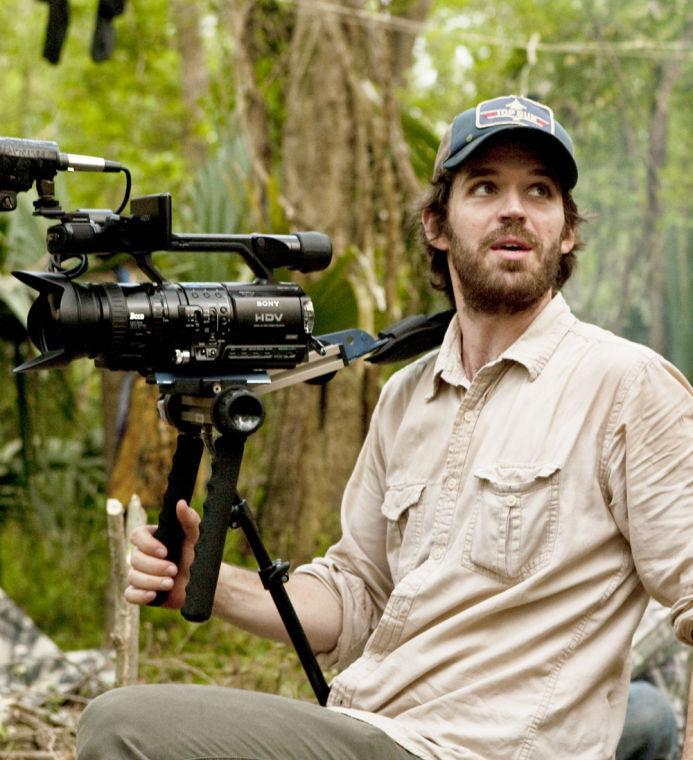North of LSU sits dilapidated shotgun houses, broken down vehicles, a lack of grocery stores and an environment unfriendly to those wishing to rise above it. The scene is similar to the Lower 9th Ward pre-2005.
In New Orleans, after desegregation, the white population migrated to higher elevations in the south of the city near the Mississippi River. The African-American community grew in the north part of the city closer to Lake Pontchartrain, where the city’s elevation — already below sea level — is at its lowest.
When the storm hit and the levees broke, New Orleans East and the Lower 9th Ward transformed into an extension of the neighboring lake. Thousands lost their homes, and hundreds more who stayed behind perished.
The geography of the city dictated that the poor receive the brunt of the devastating flood water. Residents of these areas received an unfortunate once-in-a-lifetime choice: Rebuild their lives in the city or rebuild their futures elsewhere.
In a New Yorker article, Malcolm Gladwell cited economists Raj Chetty, Nathaniel Hendren, Patrick Kline and Emmanuel Saez’s study on economic mobility, which pointed to geography as the primary barrier for economic mobility. An impoverished child in New Orleans has a 5.1 percent chance of rising out of poverty into the top fifth of the U.S. income distribution.
The study found communities with good schools, strong families, low income inequality, racial integration and strong civic participation provided the best chances for a child to rise up out of poverty into a higher economic bracket. The minimum wage, college-loan programs and economic-growth rates are not as effective in bringing children out of poverty as is their immediate environment.
While Katrina’s destruction, chaos and corruption scarred the city, it provided a chance of rebirth for poor families. I commend those who returned to New Orleans to rebuild, but I also commend those who chose to rebuild elsewhere in a city like Houston where their children are more likely to exit a life of poverty.
If the study is correct, the U.S. should rethink its approach to poverty. Can the government and nonprofit organizations find a way to aid families in moving to better communities? Should the government offer better tax incentives to private businesses and real estate developers that work in impoverished neighborhoods?
Whether it’s through direct monetary aid or the actions of private business owners, the ability to increase a child’s chances of having a better future by leaving poverty exists, and we can’t wait for the next hurricane to force people out of their previous environment.
In Baton Rouge, if the street has the name of a U.S. president, LSU students tend to stay away. The community living north of campus is geographically confined by economic factors just as the people of the Lower 9th Ward were confined before Katrina. Floodwaters aren’t what the area north of campus needs. It needs our attention, resources and love.
Justin DiCharia is a 21-year-old mass communication senior from Slidell, Louisiana. You can reach him on Twitter @JDiCharia.
Natural disasters can create opportunities for economically disadvantaged
August 30, 2015
A mural of Hurricane Katrina and Martin Luther King Jr. covers the walls of an abandoned building on Thomas Delpit Drive in Old South Baton Rouge.
More to Discover














